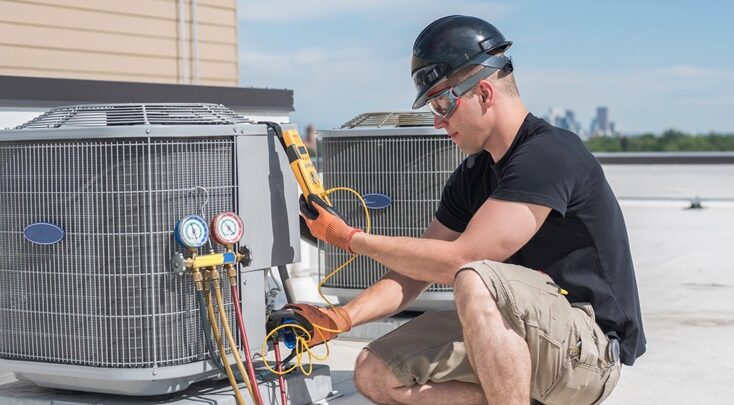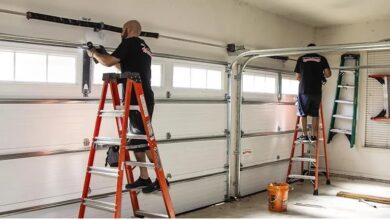The Importance of AC Maintenance

What Costs the Most on Your Utility Bill?
First Prize Goes to Your HVAC System
Which appliance is responsible for your high utility bill? When making an apples-to-apples comparison, the HVAC system usually wins hands down. In warm climates, you’ll spend a lot to cool the home. In cold climates, warming the home becomes pricey. Either way, your power bill suffers.
The older and less efficient the HVAC model, the higher your costs will be.
Electric Water Heater Takes Second Place
Your water heater guzzles through significant power each month. Tank heaters are the least energy efficient. Consider changing yours to a tankless version—or opt for a solar tank—to save on costs.
Refrigerator and Freezer
Always on, these appliances devour energy. Keep them running efficiently through proper maintenance. Don’t let them run half-empty. Use bottles of water to plug gaps in the freezer. The resulting ice helps the rest of the freezer maintain a cold temperature. During a power outage, your food will stay colder longer.
Clothes Dryer
Hanging your washing on the line is more work, but this age-old practice will save you on your power bill.
Importance of Maintaining Your Air Conditioner
The best way to save money on running your AC is by keeping it in good working order. That means arranging for regular comprehensive maintenance. The benefits include:
- Efficiency: A well-maintained unit is better able to regulate the temperature within your home.
- Healthy air: If the air conditioner’s filter is past its prime, it can’t do its job correctly. As a result, it may “inhale” more microparticles, fungi, and mold spores. This lack of proper filtration puts your family’s health at risk.
- Lower power bills: A poorly maintained AC works harder to get the job done. As a result, it consumes more power.
- Longer life span: Clogged filters and worn parts put a strain on the AC’s motor. A few quick maintenance checks a month could extend the life of the unit significantly.
- Fewer emergency repairs: Murphy’s Law states that if your AC is going to break down, it will be at the least convenient time possible. By keeping the unit maintained, you’ll head off expensive emergency repairs.
- Maintains the warranty: Not performing the maintenance as required could void your warranty.
AC Maintenance Tips You Can Do Yourself
Maintaining your air conditioner is simpler than you think. How to start? Read on! Whether inside or outside, be sure to switch off the power before attempting any maintenance. Check out these simple DIY AC Maintenance tips to keep your system in tip top shape
For Outside Units
Clean Out Debris
Remove any leaves or debris that you see on the outside of the unit. Then, remove the cap and clear out any gunk inside the condenser. A good vacuum cleaner should do the job admirably.
Unclog the Fins
You’ll notice the fins, a thick mesh of little metal prongs. If it’s possible, remove this for better cleaning. If not, vacuum the fins from the outside. Use a brush to dislodge stubborn dirt. If the fins are part of a removable cover, remove it and clean under the hosepipe using low water pressure.
The fins bend easily. It’s advisable to get fin comb if you find this happening frequently. The comb straightens a few fins at a time. For the odd bend, you may instead use a butter knife to straighten the metal. Be gentle.
Is the Insulation on The Coolant Pipes Intact?
The insulation will wear over time. Repeated exposure to the elements might cause it to erode. If this is the case, replace the insulation or the pipe.
For Inside Units
If the body of the air conditioner is inside your house, follow these simple tips.
Clear the Drain
The drain allows condensation that builds up on the outside of the cooling system to trickle away. To prevent mold formation, clear the drain tray regularly. Every few months, check to make sure that the tube isn’t clogged. If you find some, use a vacuum cleaner to remove clogs.
Check the Filter
You should check your filter once a quarter. If it’s a washable one, clean it according to the manufacturer’s instructions. If it’s not, look for clogs. The more dust and debris in your home environment, the more often you should change the filter.
Budget for a filter change every three to four months and always keep a spare filter on hand. If you don’t need to change it, there’s no harm done. If you do, you have everything that you need on hand.
Finally, once or twice a year, have a professional service the system. It’s a good idea to service it before you switch on the heating in fall and switch on the cooling in spring.



